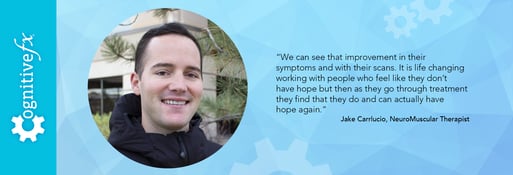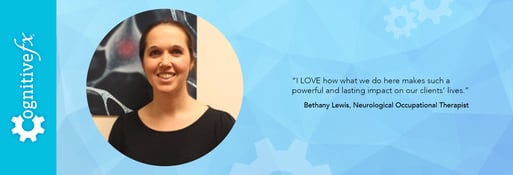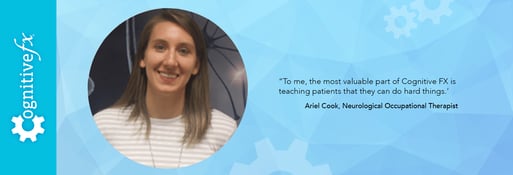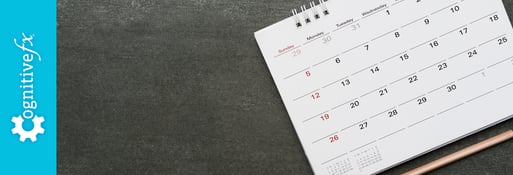Employee Feature | Jake Carluccio
Jake is a Neuromuscular Therapist here at Cognitive FX.
Published peer-reviewed research shows that Cognitive FX treatment leads to meaningful symptom reduction in post-concussion symptoms for 77% of study participants. Cognitive FX is the only PCS clinic with third-party validated treatment outcomes.
READ FULL STUDY
Sleep: something we tell ourselves we don’t have time for, yet we always seem to need more of it.
According to the Cleveland Clinic, missing even 1.5 hours of sleep can have an impact on one’s body. That means that1 in 3 Americans are weakening their immune systems, making them more prone to illness. Not getting enough sleep also puts you at a greater risk for heart disease, diabetes, cancer, anxiety and depression, weight gain, and stroke, not to mention a decline in the ability to think clearly, and a decline in memory skills. In 2016, 37.9% of adults reported falling asleep unintentionally during the day, and 4.5% said they nodded off at least once while driving in the past month.
With all of these frightening side effects of sleep deprivation, why are we not sleeping more? There are the classic excuses; “I don’t have time”, “I have better or more productive things to be doing”, or “I just can’t seem to get my mind to shut off”.
Here are some tips and tricks our Neurooccupational Therapists at Cognitive FX use to help improve sleep:
The key to successful sleep is determining what works for you, and what your personal needs are. Through using these different tips, you can figure out what those needs are, and you can start getting better sleep. With better sleep comes a better life, so start today!

The "Cognitive FX Team" is a collaborative ensemble of distinguished doctors, therapists, and practitioners. Our experts are pioneers in the field of neuroimaging and concussion treatment. With extensive experience and a strong commitment to patient care, our team excels in utilizing cutting-edge technologies, such as functional MRI (fMRI), to provide personalized diagnostic and treatment strategies. Our renowned professionals have published groundbreaking research, developed innovative neuroimaging biomarkers, and conducted thousands of individualized patient assessments. We take pride in our holistic approach to patient care, focusing on physical, cognitive, and emotional aspects of recovery. As leaders in the industry, the Cognitive FX Team is dedicated to advancing the science of concussion diagnosis and treatment to provide our patients with the highest level of care and support.

Jake is a Neuromuscular Therapist here at Cognitive FX.

Bethany Lewis is a Neurological Occupational Therapist here at Cognitive FX.


By Brittany Prijatel, Sports Psychology Consultant
With the new year comes new changes. I would like to give you 6 ways to help you identify changes that you want to make and how to fit them into a...

Using functional NeuroCognitive Imaging (fNCI) brain scan technology, we are able to measure the function and activation levels of 60 regions in the brain. We can clearly and objectively see which...

By Brittany Prijatel - Sports Psychological Consultant
Gratitude is a profound tool for cultivating positivity. Gratitude is simply the conscious act of bringing your attention to what you have or...
Published peer-reviewed research shows that Cognitive FX treatment leads to meaningful symptom reduction in post-concussion symptoms for 77% of study participants. Cognitive FX is the only PCS clinic with third-party validated treatment outcomes.
READ FULL STUDY